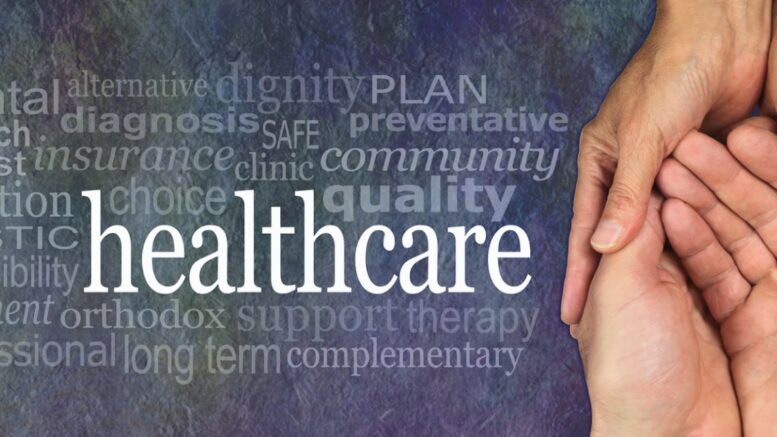Public health is crucial for promoting overall well-being and preventing disease in communities across the globe. While medicine focuses on treating individuals after they become sick or injured, public health aims to improve health outcomes and quality of life for entire populations.
The policies, systems, and environment we create through public health initiatives shape people’s health, for better or worse. Understanding what public health is, why it matters, and how it creates change can help empower advocates and policymakers to build a healthier future.
What is Public Health?
Public health is an interdisciplinary field focused on protecting and improving community health through education, policy, systems change, and research. It is the science of preventing disease, prolonging life, and promoting health through the organized efforts of society.
Public health practitioners come from diverse backgrounds, including medicine, nursing, epidemiology, nutrition, social work, and health education. They work in various settings, including government agencies, nonprofit organizations, hospitals, schools, and research institutions. While a medical doctor treats sick individuals, a public health professional looks upstream to understand why people are getting sick in the first place.
Public health efforts target broad segments of society, from entire cities to specific groups defined by characteristics like age, income level, or health behaviors. The field aims to improve health outcomes across these populations. This requires assessing their needs, developing policies and programs to meet those needs, and evaluating the effectiveness of interventions through scientific research.
Coursework and Career Opportunities:
Some public health efforts require deep collaboration with government agencies. Earning a masters in public administration for healthcare equips graduates to navigate policymaking processes, manage public health organizations, and develop data-driven interventions. Coursework covers topics like health economics, strategic planning, communication, program evaluation, budgeting, public health law, and more.
Students gain hard skills in administration, management, and leadership. They also build connections within the public health network they can leverage in their careers. Public administration degrees open doors to jobs like health policy advisor, program coordinator, public health manager, or administrator in a government public health department. For those who want to drive systemic improvements to community health through smart governance and well-run programs, public administration education is invaluable.
Importance of Public Health:
Public health efforts have had an enormous impact. Life expectancy shot up from 47 years in 1900 to over 78 today, thanks largely to public health advances. Vaccines alone save 2-3 million lives every year. We now take many public health accomplishments for granted, but we should reflect on why they matter. Here are some of the key reasons public health is so vital:

1) Prevents disease, injury, and death at the population level
Public health interventions are powerful because rather than treating one person at a time, they disrupt the root causes of health problems impacting entire communities. A vaccine protects whole networks of people, not just one individual.
Banning lead paint protects generations of children from developing lead poisoning and neurological damage. Installing pool fences prevents neighborhood kids from drowning during summertime play. Widespread immunization shields the most vulnerable who cannot get vaccinated.
2) Highly cost-effective
Spending on health promotion and disease prevention measures saves enormous amounts of money down the road on treatment. A vaccination costs far less than hospitalization for influenza.
Preventing diabetes, heart disease, and cancer through better nutrition and physical activity policies makes a major economic difference by reducing healthcare costs across society.
Taxing tobacco products also raises revenue while discouraging smoking. Upstream prevention is much more affordable than paying for downstream disease burden.
3) Advances in health equity
Public health programs can reduce unfair, unjust, and avoidable health disparities that disproportionately impact marginalized groups if designed thoughtfully with health equity as a guiding principle. A core public health ethic is pursuing health for all people, regardless of social or economic status.
Tailoring public health interventions and outreach to effectively serve and engage underserved communities requires an equity-focused approach that considers social determinants of health. This involves understanding barriers to access and participation, using culturally competent messaging and trusted messengers, and designing programs to meet the unique needs of diverse populations.
Tracking program data by demographics such as race, ethnicity, income level, disability status, etc., enables identifying and monitoring health disparities and progress toward equity goals. Ongoing community engagement and participation of impacted groups in planning is key.
4) Strengthens communities
Healthy communities are more resilient, cohesive, and better able to support their residents. Public health measures like ensuring clean air and water, reducing environmental and occupational hazards, and providing accessible health services make neighborhoods more livable, connected, and safe for all. This builds social capital, trust, and a sense of belonging among residents.
Public health programs are an upstream investment that pays dividends across lifetimes by nurturing the foundations of flourishing communities. The social ties cultivated enable resilience during crises like natural disasters and pandemics. Overall, a community-focused public health system empowers people locally to support each other’s well-being.
5) Shapes the underlying conditions for health
Our health is fundamentally tied to the social, economic, and environmental conditions in which we live. Public health policies and programs can positively influence these upstream health determinants like income, housing, transportation systems, food access, and quality of education. For instance, anti-poverty programs lift families out of financial stress that damages health.

Public health professionals advocate for the just distribution of resources and opportunities at the policy level. This includes supporting equitable access to living wages, affordable housing, nutritious foods, clean air and water, green spaces, high-quality schools, and other foundations of health and well-being. Shaping health-promoting societal conditions creates an enabling environment where people and communities can thrive.
6) Serves the common good
Since public health focuses on community-wide benefits, it promotes a vision of health as a shared good we have a collective responsibility to protect. Stewarding public health is an act of caring for something bigger than ourselves. Public health exemplifies how we are all interconnected, and looking out for each other advances everyone’s well-being.
No one is safe from communicable diseases until everyone is safe. No one is truly healthy if our neighbors lack the resources for their health and well-being. We depend on one another. Public health systems are designed to serve entire populations – not just individuals who can pay. This aspirational view of health as an essential common good rooted in social justice is a noble aspect of the field.
Conclusion:
In these ways and more, effective public health measures can vastly improve the length and quality of life for whole groups of people while using resources wisely. Public health success relies on government agencies, community organizations, businesses, health systems, and ordinary people working together to make prevention, health promotion, and health equity a priority. The collective effort is well worth it.
